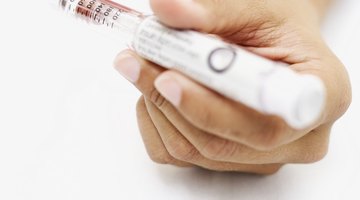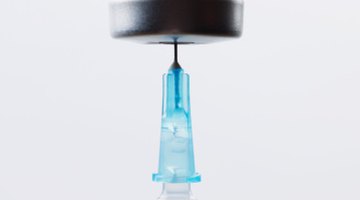How to Lower Your HCG Levels
Human chorionic gonadotropin, or hCG, is the pregnancy hormone. Levels of hCG are used in urine and blood tests to detect pregnancy. On average, according to the American Pregnancy Association, the levels may be detected any time between 11 and 14 days after conception. The hormone levels rapidly increase after conception and, in most women, they can as much as double within every 72-hour time period.
Allow your hormone levels to decrease naturally. In most pregnant women, the hCG levels will lower on their own after the woman is eight to 14 weeks along in the pregnancy. These levels naturally decrease as the hormone is present to supply nutrition to the newly fertilized egg. After the egg is fully attached to the uterine wall and is thriving, it doesn’t need as much of the hormone in order to grow.
Wait for the end of your pregnancy. Your hCG levels will automatically drop after you have the baby or pursue alternative options. Once the fetus is no longer present in the womb, the hormone levels naturally decline as they are not needed to supply nutrition to the fetus. On average, it will take your body near four to six weeks for the hCG levels to drop.
Take fertility medication. Fertility medication is used to alter the hCG levels so that it’s easier for the woman to become pregnant. Most fertility medications are used to drastically increase the hCG levels initially, and then they get lower after the fetus begins thriving in the womb. Fertility medications allow your doctor to control your hCG levels as opposed to letting your body do it on its own.
Visit your doctor. Low levels of the hCG hormone within the first eight to 11 weeks of pregnancy can indicate a number of problems. This is a very critical time for the formation of the fetus and low levels indicate that your fetus isn’t getting what it needs in terms of proper nutrition. This can include signs of a possible miscarriage or a miscalculation in the age of the fetus.
Warnings
Don’t attempt to lower your hCG levels during your pregnancy without help from your doctor as this could be potentially dangerous.










